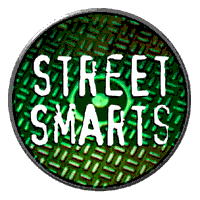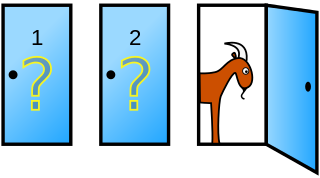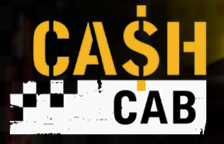The show would open with a monologue by the two hosts, usually loosely referencing what the contestants were to do, followed by a really quick montage of the following dares to come. Contestants were picked off the street at random, and most of the time, not even told what dare they were going to do prior, but what cash amount they were to receive.
The show also usually had a big challenge where 1,000 GBP was up for grabs. These were usually accumulative three part challenges with each one getting worse. Money wasn't received for these until the last one was completed.
The show is usually done in a leave-off format, in that the contestants tend to be already rounded up, skipping the process of finding them in the street more often than not. Transitions are coupled by quick montages.
Recurring Dares
Although Wudja Cudja has its share of variations, episodes tended to contain much nudity, branding it an adult program overall. Some of the recurring games were:
Two [not always] female contestants would compete in a contest to see who could rip their clothes off the fastest. The women weren't allowed to use any zippers, or buttons, and had to strip down to just their panties. This was a common game and the contestants were always caught off guard and picked randomly off the street.
Another female specific game in which contestants would have each other's bikinis put together, and pull against each other to see whose ripped off.

A game show is a genre of broadcast viewing entertainment where contestants compete in a game for rewards. The shows are typically directed by a host, who explains the rules of the program as well as commentating and narrating where necessary. The history of the game shows dates back to the late 1930s when both radio and television game shows were broadcast. The genre became popular in the United States in the 1950s, becoming a regular feature of daytime television.
Guy Smiley is a fictional character on Sesame Street who was dubbed "America's favorite game show host". His skits are among those on the show that parody commercial media. Smiley has also hosted This Is Your Lunch and Here Is Your Life, a parody of This Is Your Life. Guests who were profiled included a loaf of bread, a tooth and a tree. He has also hosted pageants for numbers and letters.

Dick & Dom in da Bungalow is a British children's television series presented by the duo Dick and Dom. The series was broadcast on weekend mornings for five series on the CBBC Channel, BBC One and BBC Two, running between 31 August 2002 and 11 March 2006.

Beat the Clock is an American television game show. Contestants attempted to complete challenges such as physical stunts within a time limit in order to win prizes. The show was a creation of Mark Goodson-Bill Todman Productions.

What Would You Do? is a 30-minute television show hosted by Marc Summers shown on Nickelodeon from 1991 to 1993. Robin Marrella acted as the on-camera stagehand for the show's first season. Both Summers and Marrella performed their respective duties on Double Dare, also on Nickelodeon. The show was produced in Nickelodeon Studios at Universal Studios in Florida; some early segments were produced at Universal Studios in Hollywood.

Play Your Cards Right is a British television game show based on, and played similarly to, the American show Card Sharks.

The Sunday Night Project is a British comedy-variety show by Princess Productions that first aired on Channel 4 in February 2005 under the title The Friday Night Project. Originally broadcast on Friday nights, the show moved to Sunday nights for its seventh series in 2008.

Street Smarts is an American game show that featured two in-studio contestants trying to predict the outcome of interviews of people who were found on the street. The show, which was hosted by Frank Nicotero, aired in syndication from 2000 to 2005. Nicotero would be on locale with the on the street contestants, virtually any and everywhere in the United States. The in studio gameplay however, was at G4 and TMZ, headquarters, Victory Studios, in Glendale, California.

Fun House is an American children's television game show that aired from September 5, 1988 to April 13, 1991. The first two seasons aired in daily syndication, with the Fox network picking it up and renaming it Fox's Fun House for its third and final season.

Gunge as it is known in the United Kingdom, or slime as it is known in the United States and most English-speaking areas of the world, is a thick, gooey, yet runny substance with a consistency somewhere between that of paint and custard. It has been a feature on many children's programs for many years around the world and has made appearances in game shows as well as other programming. While gunge mostly appears on television, it can also be used as a fundraising tool for charities, youth and religious groups. Gunge tanks have appeared at nightclubs and Fun Days. The British charities Comic Relief and Children in Need, supported by the BBC, have used gunge for fundraising in the past. In the U.S., slime is sometimes associated with Nickelodeon, even having several game shows revolving around it, such as Slime Time Live.
Take Your Pick! is a British game show originally broadcast by Radio Luxembourg starting in 1952. The show was transferred to television in 1955, one day after the launch of ITV, where it continued until 1968. It was the first game show broadcast in the UK to offer cash prizes.
I Bet You Will is an Internet webcast, and later a show on MTV, that paid people to do outrageous things for money. In 2008, reruns of the program began to air on Spike. It was created by Morgan Spurlock. The show was hosted by Spurlock, musician/TV host/model Willa Ford, musician Jive Jones, comedian Godfrey, and Hescher.
The Price Is Right is a British television game show based on the American version of the same name. It originally aired on ITV from 24 March 1984 to 8 April 1988 and was hosted by Leslie Crowther. The show later briefly moved to Sky One for one series as The New Price Is Right from 4 September 1989 to 31 August 1990 with Bob Warman as the host.

The Monty Hall problem is a brain teaser, in the form of a probability puzzle, based nominally on the American television game show Let's Make a Deal and named after its original host, Monty Hall. The problem was originally posed in a letter by Steve Selvin to the American Statistician in 1975. It became famous as a question from reader Craig F. Whitaker's letter quoted in Marilyn vos Savant's "Ask Marilyn" column in Parade magazine in 1990:
Suppose you're on a game show, and you're given the choice of three doors: Behind one door is a car; behind the others, goats. You pick a door, say No. 1, and the host, who knows what's behind the doors, opens another door, say No. 3, which has a goat. He then says to you, "Do you want to pick door No. 2?" Is it to your advantage to switch your choice?

Cash Cab is an American game show that originally premiered in 2005, on the Discovery Channel, hosted by stand-up comedian Ben Bailey. It is part of the global Cash Cab franchise that originated in the United Kingdom.
Boys and Girls was an English television gameshow broadcast in 2003 by Channel 4.
Mister Maker is a British children's television series produced by RDF Media /The Foundation for CBeebies. The series aired from 17 September 2007 until 12 April 2009.

It's Only TV... But I Like It is a comedy celebrity panel gameshow about television. It originally aired on BBC One from 3 June 1999 to 23 August 2002. Its presenter was Jonathan Ross, and the regular team captains were Julian Clary, Jack Dee, and Phill Jupitus.

Remotely Funny is a British children's game show hosted by Sara Forsberg. The show is produced by Twenty Twenty Kids for CBBC. The show features three children from across the United Kingdom connected remotely via webcam competing in various challenges to win points known as 'Samojis'. The series began on 13 February 2017.
The Wheel is a British television game show hosted by Michael McIntyre, broadcast on Saturday evenings on BBC One.












